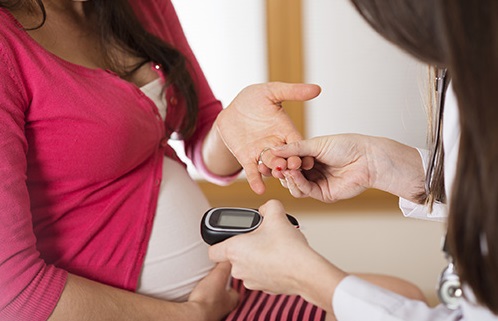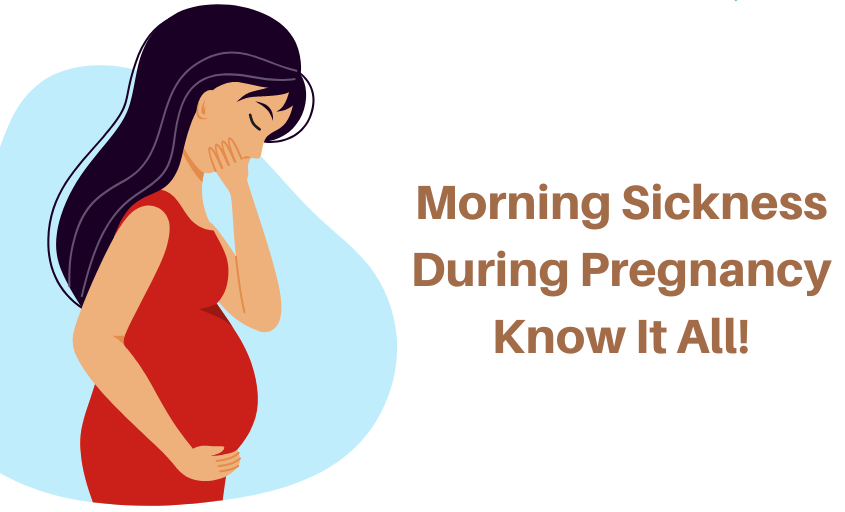Introduction
Every expectant mother is concerned with providing the best possible environment for their unborn child, which often includes being cautious about their diet. One such dietary concern is the consumption of raw eggs. This article aims to explore this topic in detail and shed light on the risks associated with raw egg consumption during pregnancy.
Basics About Raw Eggs
Eggs that haven’t been cooked or heated, known as raw eggs, can contain potential bacteria. People often consume them despite the risks because they offer high protein content, healthy fats, and essential vitamins and minerals.
Risks Associated with Raw Eggs
The primary risk associated with raw egg consumption is the bacterial infection known as salmonella. Salmonella can cause food poisoning, leading to symptoms like diarrhea, fever, and abdominal cramps. Besides salmonella, raw eggs may also contain other harmful bacteria and viruses, making them risky to consume, especially for vulnerable populations like pregnant women.
Raw Eggs and Pregnancy
Proper nutrition is crucial during pregnancy. However, certain foods, including raw and undercooked eggs, are advised to be avoided due to their potential health risks. The immune system undergoes changes during pregnancy, which can make expectant mothers more susceptible to foodborne illnesses such as salmonella.
Salmonella, Pregnancy, and the Risk of Miscarriage
A salmonella infection can cause severe dehydration and fever, which can potentially increase the risk of a miscarriage or preterm labor. While the exact correlation between raw egg consumption, salmonella infection, and miscarriage isn’t fully established, it’s clear that any foodborne illness during pregnancy can potentially have serious consequences.
Prevention and Safety Measures
Safe egg consumption practices for pregnant women include always choosing well-cooked eggs and avoiding products containing raw or undercooked eggs, such as certain salad dressings, cookie dough, and homemade ice cream. It’s also wise to consider alternative nutrient sources. For example, lean meats, dairy products, and certain vegetables can provide the same essential nutrients as eggs. Remember to consult with a healthcare professional about any dietary changes during pregnancy.
Myths and Misconceptions
Many myths circulate regarding raw egg consumption and miscarriage. Some people believe that raw eggs are a superfood that boosts fertility and pregnancy health, while others fear that even a single raw egg can lead to miscarriage. It’s essential to separate fact from fiction and rely on scientific evidence when making dietary decisions during pregnancy.
Sleeping position that can cause miscarriage.
There is currently no scientific evidence to suggest that a particular sleeping position can directly cause a miscarriage. Miscarriage is typically caused by factors outside one’s control, such as chromosomal abnormalities, age, chronic diseases, or certain infections.
As pregnancy progresses, certain sleeping positions may become uncomfortable or risky. Sleeping on your back later in pregnancy is advised against due to potential issues with backaches, breathing, digestion, hemorrhoids, low blood pressure, and decreased circulation to the heart and baby. This is due to your abdomen resting on your intestines and major blood vessels (the aorta and vena cava).
If you’re pregnant and experiencing sleep difficulties or have any concerns about sleep positions, it’s best to consult with your healthcare provider who can give you personalized advice.
How much pineapple juice will cause a miscarriage?
The notion that pineapple or pineapple juice can cause a miscarriage is a common myth. Pineapples contain an enzyme called bromelain, which has been suggested to soften the cervix, potentially leading to miscarriage. However, the levels of bromelain in commercially available pineapples and pineapple juice are generally too low to have such an effect.
Moreover, most of the bromelain in pineapples is located in the stem, which is typically not consumed. To ingest enough bromelain to affect the cervix, one would have to consume an extremely large amount of pineapple core, which is not only impractical but also unlikely given the nature of the average diet.
Scientifically, there is no evidence to suggest that consuming pineapple or pineapple juice can cause a miscarriage. Still, it’s always a good idea to eat and drink in moderation and to have a balanced diet during pregnancy. Always consult with a healthcare provider if you have questions or concerns about your diet during pregnancy.
Read More: How many eggs should you eat to have a miscarriage?
Pills that can cause miscarriage.
Certain medications have been linked to increased risk of miscarriage. However, it’s essential to consult a healthcare provider before starting or stopping any medication, especially during pregnancy. Here are some medications which have been linked to increased miscarriage risk:
- Nonsteroidal anti-inflammatory drugs (NSAIDs): Over-the-counter medications like ibuprofen, if taken during early pregnancy, have been associated with an increased risk of miscarriage.
- Certain Antidepressants: Some research suggests that certain antidepressants, specifically selective serotonin reuptake inhibitors (SSRIs), might be associated with an increased risk of miscarriage.
- Retinoids: Retinoids, which are a form of Vitamin A, are used in some acne medications, and high doses are known to cause birth defects and potentially increase the risk of miscarriage.
- Misoprostol: This medication is sometimes used off-label to induce miscarriages in early pregnancies, usually under the direct supervision of a healthcare provider.
- Methotrexate: This medication, used for cancer, psoriasis, and arthritis, is known to cause miscarriage and birth defects and is typically avoided in pregnancy.
- Certain illegal drugs: Usage of drugs such as cocaine and methamphetamines can increase the risk of miscarriage.
- High doses of radiation and certain chemotherapy drugs: These are known to increase the risk of miscarriage.
This list is not exhaustive, and the presence of a medication on this list does not mean that it will definitively cause a miscarriage. It means that there might be an increased risk. As always, it’s crucial to discuss with a healthcare provider before making any decisions about medication use during pregnancy.
What drinks can cause miscarriage?
While many beverages are safe to consume during pregnancy, some should be avoided due to potential risks. It’s important to note that the consumption of certain drinks may increase the risk of miscarriage, but they are not guaranteed to cause one. Here are a few drinks that should be avoided or limited during pregnancy:
- Alcoholic Beverages: Any amount of alcohol is considered unsafe during pregnancy. Drinking alcohol can lead to a variety of complications, including miscarriage, stillbirth, and fetal alcohol syndrome.
- High-Caffeine Drinks: High levels of caffeine intake may increase the risk of miscarriage or preterm birth. This includes not just coffee, but also some teas, sodas, and energy drinks. It is generally recommended to limit caffeine intake to under 200 mg per day.
- Unpasteurized Juices: These can contain harmful bacteria like E. coli and Salmonella, which could lead to foodborne illnesses that might increase the risk of miscarriage.
- Herbal Teas: Some herbal teas contain ingredients that could potentially increase the risk of miscarriage or preterm labor. It’s best to consult with a healthcare provider before consuming herbal teas during pregnancy.
As always, it’s important to maintain a balanced diet and consult with a healthcare provider for personalized advice during pregnancy.
Read More: Can Tight Pants Cause Miscarriage in Early Pregnancy?
Things that can cause a miscarriage in the first 8 weeks.
Miscarriages, especially in the early weeks of pregnancy, are fairly common and often the result of factors outside an individual’s control. Here are some factors that could potentially contribute to a miscarriage within the first eight weeks:
- Chromosomal Abnormalities: A majority of early miscarriages occur because the embryo has the wrong number of chromosomes. When an embryo has too many or too few chromosomes, it may stop developing and result in a miscarriage.
- Maternal Health Conditions: Certvain chronic conditions in the mother, such as uncontrolled diabetes, severe high blood pressure, kidney disease, autoimmune disorders, and thyroid disease, can increase the risk of miscarriage.
- Infections: Some infections, particularly those affecting the uterus or placenta, can increase the risk of miscarriage.
- Structural Problems: Structural abnormalities in the uterus or cervix can sometimes lead to miscarriage.
- Lifestyle Factors: Smoking, heavy drinking, illicit drug use, and high caffeine intake can increase the risk of miscarriage.
- Certain Medications: Some medications, including nonsteroidal anti-inflammatory drugs (NSAIDs) and some antibiotics, can increase miscarriage risk.
- Advanced Maternal Age: Women above the age of 35 have a higher risk of miscarriage due to increased chances of chromosomal abnormalities in the eggs.
- Environmental Toxins: Exposure to certain environmental toxins can increase the risk of miscarriage.
It’s essential to keep in mind that a miscarriage is not anyone’s fault, and it’s usually impossible to prevent it. If you’ve experienced a miscarriage or have concerns about this issue, please consult with a healthcare provider who can provide support and guidance.
Can drinking hot water cause miscarriage?
No, the consumption of hot water does not lead to a miscarriage. There is no scientific evidence to suggest that consuming hot liquids could lead to a miscarriage. However, it is important to avoid scalding liquids to prevent burns and discomfort.
Drinking hot water itself does not cause miscarriage, but extreme internal body heat from other factors, like high fever or extended hot tub/sauna use, may increase the risk during early pregnancy. Ensure proper hydration and consult your healthcare provider for any concerns about diet and lifestyle during pregnancy.
Conclusion
Raw eggs offer nutritional benefits but pose risks, especially during pregnancy. Prioritize a safe diet for your health and your baby’s. Consult a healthcare professional for personalized advice.















One thought on “How Many Raw Eggs Can Cause Miscarriage?”